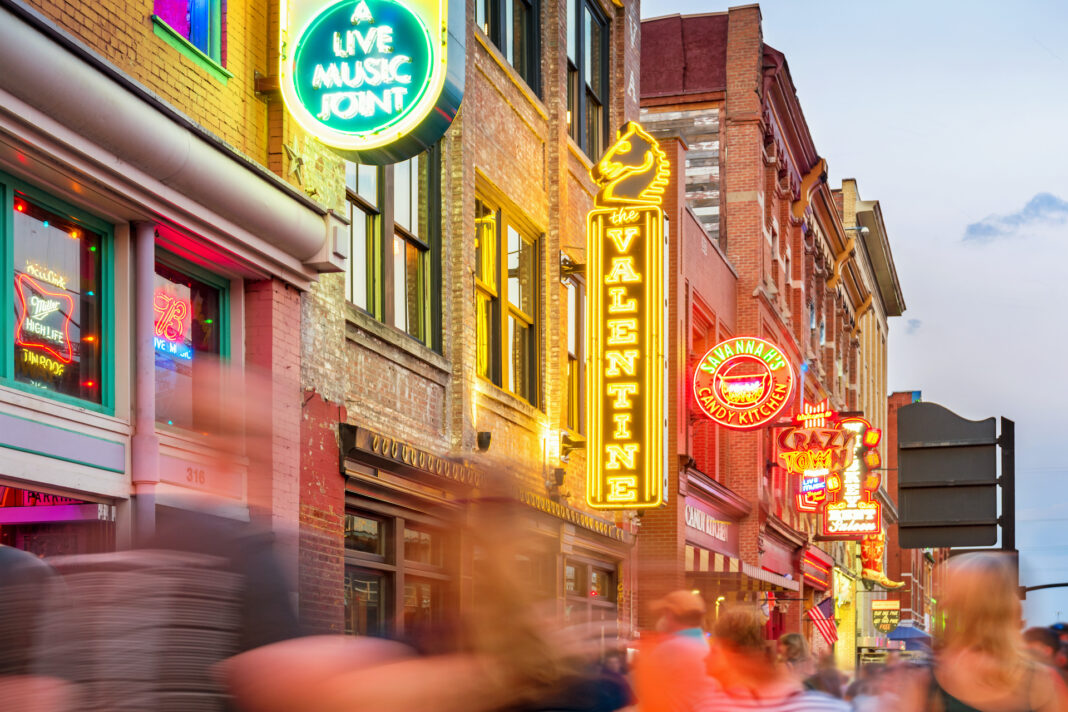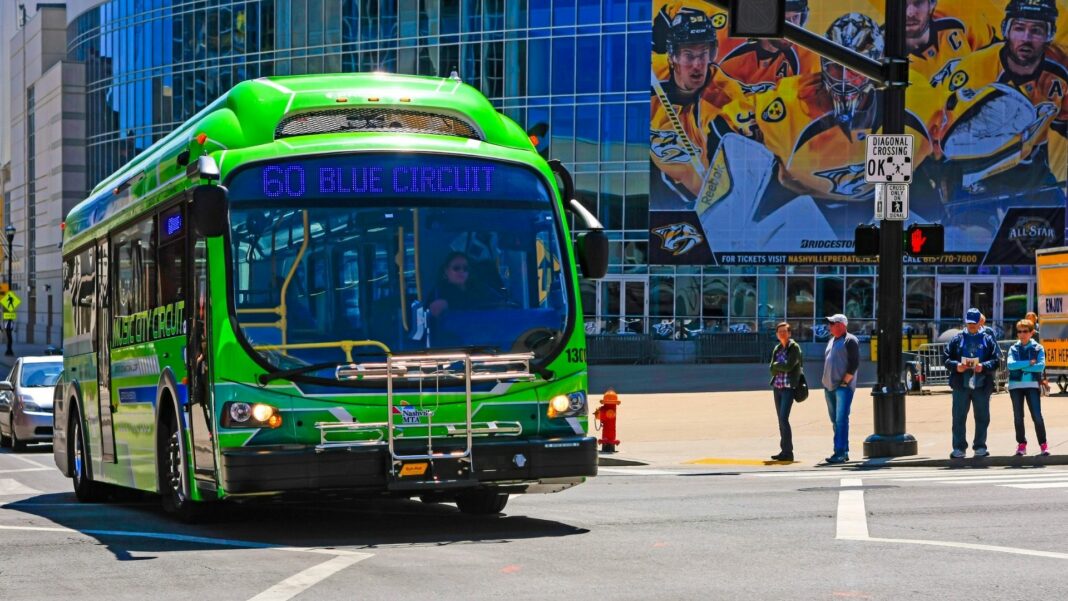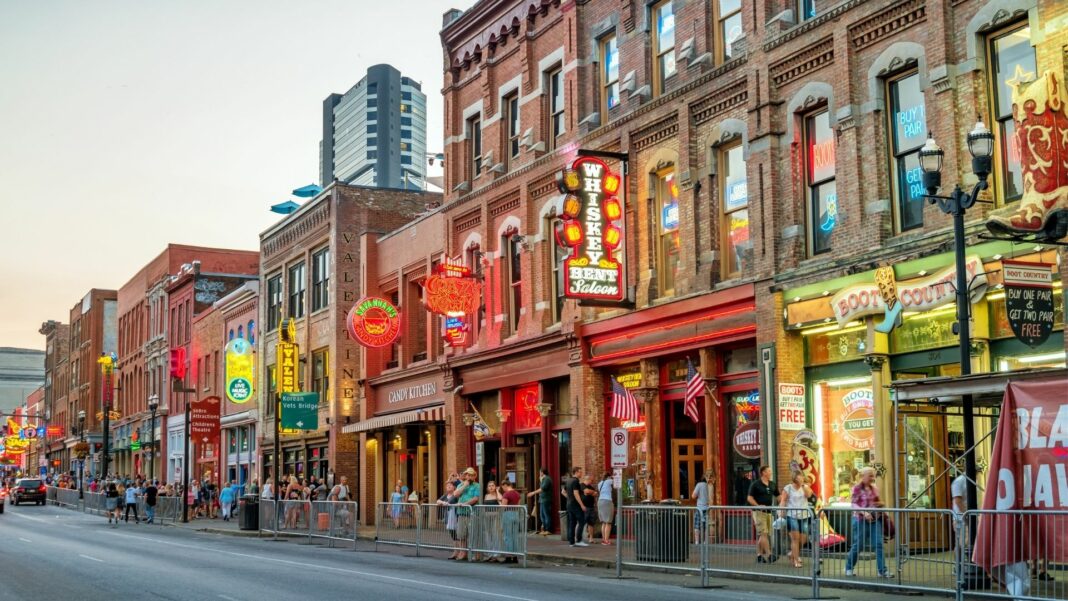
Whether you’re looking to start your music career, enjoy an abundance of outdoor space, or want a change of pace, Nashville, Tennessee, is a great place to live. If you’re considering making the leap, you may wonder how expensive living in Nashville is. The Nashville, Tennessee, cost of living is about 5% lower than the national average. When determining the cost of living in Nashville, you’ll need to factor in your salary, location, and lifestyle. Explore this guide to the cost of living in Nashville to help navigate your move.
What to consider when determining the cost of living in Nashville
- Rental costs
- Utilities
- Transportation
- Food costs
- Fitness and entertainment
- Health care
Rental costs
The cost of Nashville rentals has risen sharply, with the city now ranked as the 17th most expensive city for renters. On average, you can expect to pay approximately $1,790 for a one-bedroom apartment and $1,840 for a two-bedroom. This rate may change based on the area you’re looking in. Downtown areas are usually more expensive due to their high demand. You may be able to find something with more space and a lower price in Nashville neighborhoods slightly outside of the city, such as Donelson or Madison.
Utilities
The utility prices in Nashville are 9% lower than the national average. You can expect to pay around $212 for your essential monthly utilities (electricity, heating, cooling, water) for a 915-square-foot apartment. Nashville’s distinct seasons mean you can turn off the air conditioning or heating in fine weather to reduce your utility bills. For fast internet with unlimited data, expect to pay about $88 per month, with prices changing as your speeds increase or decrease.
Transportation

Nashville’s WeGo Public Transit system makes accessing the city’s points of interest easy. This system features more than 50 bus routes, so it should be able to take you where you want to go. A one-way adult ticket costs $2, all-day passes are $4, and a monthly pass costs $65.
While public transportation makes navigating downtown easy, you’ll probably want a car if you live in the suburbs or have a long daily commute. Suppose you plan on owning a car in Nashville. Factor car insurance and gas prices into your monthly budget. The current gas price in Nashville is $4.21 per gallon as of August 2022. The annual average premium for car insurance in Nashville is an affordable $860, around 15.6% less than the state average and 39.6% less than the national average.
Food costs
Nashville’s amazing food scene is legendary, especially the barbecue and hot chicken. When living in Nashville, you’ll want to budget for eating out. An average meal at an inexpensive restaurant costs around $15. A three-course meal for two at a mid-range restaurant averages around $70. For some of the best Nashville eats, check out Shotgun Willie’s, known as the best barbecue in the city. Your dollar goes further eating in, but you’ll spend approximately $472 on your monthly groceries per person.
Fitness and entertainment

You won’t get bored living in Nashville. As one of the country’s live music capitals, there’s a wide range of entertainment. Many downtown bars showcase free live music during the evenings, but you can also experience top headliners at music venues, including The Grand Ole Opry. The average cost of a concert ticket in Nashville is $135, but it varies depending on popularity and venue. If you prefer sports, tickets to the Tennessee Titans football games at Nissan Stadium average $72, and tickets to the Nashville Predators hockey games at Bridgestone Arena average $80.
Suppose you love working out in the gym. Set aside around $69 for your monthly membership. Many gyms have application and first-time membership fees that can increase your upfront costs. If you want to save money, take advantage of Nashville’s superb outdoor recreation facilities. Enjoy a walk, run, or cycle through the Warner Parks trails or get some friends together and play on the sports fields. You’ll stay fit and won’t spend a cent.
Health care
Nashville is a city that looks after its residents. The city’s health care options are 7% lower than the national average, with a doctor’s visit costing around $110 and a dentist’s visit costing approximately $94. Nearly 90% of residents in Davidson County, where Nashville lies, have health insurance. The county’s cheapest silver health insurance plan is $457 for a single 40-year-old, $914 for a couple of this age, and $1,188 for a 40-year-old couple with a child. Metropolitan Social Services outlines several free and low-cost health options in Davidson County if you can’t afford health insurance.
Other expenses to consider
Nashville residents typically pay a combined state and local sales tax of 9.75% on their purchases, which can increase the cost of your regular shopping. Some purchases have a lower sales tax, including sporting tickets, long-term parking, and alcoholic spirits.
It’s also worth noting that Nashville is enjoying mass expansion. This expansion typically correlates to higher living costs for every resident. Make sure you pad your budget a little to absorb those inevitable price increases.
Recommended salary for living in Nashville
Before moving to Nashville, you’ll want to know what salary you can expect when working in the city. The average salary in Nashville, TN is $65,000 per year, and the minimum wage in the state of Tennessee is $7.25. To determine your recommended salary to accommodate the cost of living in Nashville, you will need to total your monthly spending on rent, utilities, food, entertainment, and miscellaneous bills. The best thing to do is follow the 30% rule, which recommends that rent should only be 30% of your monthly budget. As the current median rent for a 1-bedroom apartment in Nashville is $1,560, your recommended monthly income would be $5,200 or $62,400 annually. Using the 30% rule can give you a better idea of where you should look for apartments in the Nashville area to find the best rentals that accommodate your monthly budget.
FAQ: Cost of living in Nashville
Discover more details about the cost of living in Nashville, plus how to find an affordable apartment.
The best way to find a cheap apartment in Nashville is to research your options carefully. Narrow down your searches based on essential criteria, such as the number of bedrooms, outdoor space, and proximity to your workplace or school. Once you do this, you’ll understand better what you can expect to pay for your rent. Quick online searches will provide you with several different options for neighborhoods, apartments, and even houses for rent that will fall within your budget. Consider expanding your search to other neighborhoods for a great deal.
Nashville has the highest cost of living of any city in Tennessee, so make sure you bring your checkbook. Living in Nashville is 15.7% more expensive than living in Knoxville and 25% more expensive than in Memphis. The smaller the city, the less expensive it’s likely to be when compared to Nashville. Living in Nashville buys you a lifestyle and opportunities that don’t exist in many of Tennessee’s other cities. If you’re attracted to a lower cost of living, consider these more affordable Tennessee cities.
As of 2022, the current population is 1,294,000, which is a 1.73% increase from the year before.
If you’re a fan of live music, delicious food, and an opportunity for adventure, Nashville is a great place to live. The affordable housing market and ample job opportunities make this city a top area for those looking for a new area to live. Before making your move to Nashville, consider all aspects of the cost of living to determine your budget and then find the perfect apartment in The Music City.



